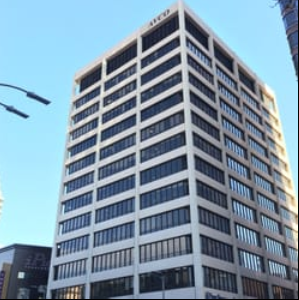In Georgia, the compounding of medications is regulated by the eight-member Georgia Board of Pharmacy, and under its rules, pharmacists may prepare compound drugs only for a valid prescription order or as part of routine prescription filling. If they start to produce large amounts of drugs without prescriptions, they are considered manufacturers.
In a law enacted July 1, Georgia clarified that sterile compounding not intended for specific patients can only be conducted by an outsourcing facility. This brought state law in line with federal law. Georgia’s law states “nothing in this Code section shall be construed to prohibit or interfere with the ability of a practitioner to compound drugs for administering or dispensing to their own patients.”
The law allows out-of-state firms and third-party logistics providers (those who transport the drugs, for example) to operate in the state if they have the same ownership as a licensed Georgia pharmacy. Additionally, out of state third-party logistics providers can be licensed by their resident state or by the federal Food and Drug Administration.
The law also allows for temporary licenses that would be valid for six months. The Georgia Board of Pharmacy still needs to establish rules and regulations before this is implemented.
The new laws and regulations stem from a 2012 fungal meningitis outbreak that killed 64 people. Congress reacted with the Compounding Quality Act, which was signed into law Nov. 27, 2013. Contaminated drugs provided to hospitals by the New England Compounding Center — a nontraditional compounding pharmacy — caused the meningitis outbreak. The FDA views nontraditional pharmacies as a branch of commercial pharmaceutical manufacturing, which it regulates.
The Compounding Quality Act is part of the Drug Quality and Security Act of 2013, which was implemented to increase oversight of nontraditional compounding pharmacies. Nontraditional pharmacies that compound sterile drugs — such as those that caused the meningitis outbreak — can register as an outsourcing facility to become exempt from the requirements of the Federal Food, Drug and Cosmetic Act (FDCA), which is the nation’s primary drug safety law. Registering as an outsourcing facility allows compounders to avoid the FDCA’s time-consuming approval process for new drugs. To register as an outsourcing facility, compounders must follow strict Current Good Manufacturing Practices. A licensed pharmacist must compound the drugs using only bulk ingredients from an approved list.
The law was originally drafted to make all nontraditional pharmacies — or manufacturers, in the view of the FDA — register as an outsourcing facility. However, the subtle distinctions between traditional and nontraditional compounding pharmacies compelled the government to make the registration voluntary. Proponents argued that market forces, such as buying from an FDA-approved supplier, would drive most pharmacies to enroll. As of Oct. 7, 65 outsourcing facilities have submitted registration information.
The Hasson Law Group recommends that compounding pharmacies preparing to design facilities to comply with new regulations seek advice from qualified legal counsel.
For questions about compliance with other federal and state laws and regulations that govern the practice of compounding pharmacies, contact Hasson Law Group.

